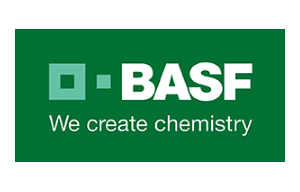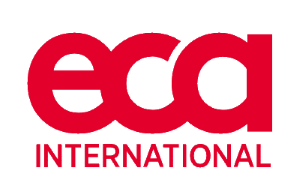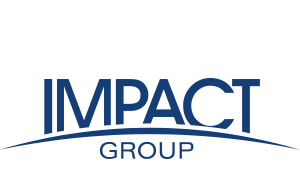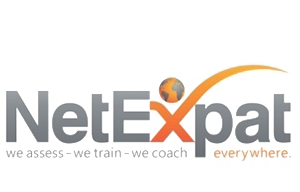Permits Foundation Global Symposium, December 2008 – Press Release
04 December 2008“Global survey, local networks” – Thursday 4th December, 2008, The Hague, Kuala Lumpur, Bangalore, Tokyo, Jakarta and Moscow
Almost 100 representatives of international employers, government ministries, service providers and expatriate family organisations joined a global symposium, linked by video, to discuss Permits Foundation’s advocacy of work authorisation for accompanying spouses and partners. The meeting focused on the results of the foundation’s global survey, together with plans of the new local networks in Malaysia, India, Japan, Indonesia and Russia.
Feedback from delegates was this was a very motivational way to share developments and that everyone was keen to make further progress in 2009.
Introduction
Stephanie Boyde, manager executive remuneration at Shell and board member of Permits Foundation, welcomed the delegates in Shell’s offices in The Hague and other locations, linked by video. Gill Gordon, director executive compensation for Schlumberger and chairperson of the board of Permits Foundation, summarised the foundation’s aims, strategy and plans. She showed the growing number of countries that allowed spouses and partners to work freely. These countries saw this as an easy and effective way to enhance their attractiveness, within a policy of managed migration.
Keynote messages from patrons
Jeroen Van der Veer, CEO of Shell, emphasized the solid business case for the work of Permits Foundation in supporting international mobility. He was struck by the findings of the survey that only 35% of spouses were able to work in the host location and that three quarters of those who are not working would like to work. The foundation had made good progress but there were still a lot of countries where change was needed. Jeroen van der Veer also stressed the importance of remaining focused on the goals throughout the credit crunch and economic recession.
Sandy Ogg, chief HR officer and member of the Unilever Executive, expanded on the HR case for supporting change, adding several anecdotes on the importance of international staff mobility. His statement that the work of the Permits Foundation reduces the price an expat pays to take an assignment was well received.
Global spouse and partner survey results – Katy van der Wilk-Carlton, board member of the foundation, summarised the findings of the global survey in which 3300 expatriate partners had taken part. The key findings were that a lack of spouse and partner employment opportunities adversely affects international mobility and that a few simple improvements, including work permits for spouses and partners, can create a “triple win” for employers, families and host countries. Moreover, spouses and partners are a highly educated, under-utilised talent pool that can contribute to the economy of the host country.
Presentations by local network chairmen
The 5 network chairmen summarised the current local situation and plans for promoting change:
Indonesia
David Tournadre from Schlumberger introduced his fellow participants from USAID, CIFOR/ICRAF, Freeport, Dutch Embassy, Palyja and Ernst & Young. Network members who were not present included BP, the British and French Embassies, Shell, Total and Unilever. Indonesia was the largest economy in S.E. Asia and politically stable. The number of expatriates was increasing. Companies need to have a quota to employ foreign staff and no concession was available for spouses. In addition to the general issue of spouse work permits, a specific concern was that husbands of female expats were not legally recognised. The plans are to lobby for change after the parliamentary and presidential elections in mid 2009. They need to make a thorough inventory of current regulations and find an Indonesian spokesperson and champion.
Malaysia
Jonathan Kohn from Shell introduced his colleagues from Shell and Schlumberger and other companies who were not able to attend.
Jonathan explained that there was currently no concession for spouses who want to work. If they succeed in getting a job offer, they have to leave Malaysia to apply for a permit. The local network was in the exploratory phase. They felt that data has to do the talking and to that end the results of the survey were extremely helpful. They were keen to receive more detailed data on Malaysia. It would also be important to show that the global initiative benefits Malaysians abroad. They would also like to show some human-interest stories. They are considering how to approach other stakeholders and broaden support. They have contacted Petronas, the national oil company, and the Malaysian Chamber of Commerce. They will build the case for change during first half of 2009, with a view to making formal proposals to the government in the second half of the year. One idea might be to seek a trial in the area of the ‘’Multi Media Super Corridor’’, which already has a number of special incentives to encourage investment.
India
Archana Bhaskar, HR director Shell India, introduced some of network members from BG Group, Schlumberger and Torque Communications.
Archana explained that whereas traditionally India had been a net exporter of talent, this was changing dramatically. The number of inbound expats had doubled in the last three years and the profile was changing towards more technical staff. The government had not consciously considered the issue of spouse work permits. Currently, if a spouse gets a job offer, they have to go back to the host country to apply for an employment visa. The network has contracted the services of Torque Communications to put a case together for spouse work permits, possibly linked to inter-company transferees, and expected to make initial approaches to the ministry early in 2009. The India network also emphasised the importance of being able to demonstrate that Indian spouses benefit in other countries.
Japan
Yujiro Otsubo, personnel manager Schlumberger, introduced his colleagues in the Japan network from Bosch, British Embassy, Goldman Sachs and Shell Outpost. He emphasised the good diversity of active support and mentioned several other participants who were unable to attend – AstraZeneca, BMW, Dutch Embassy, Unilever and Shimoda Law Offices. Yujiro described the current regulations under which spouses could apply for a special permission to work up to 28 hours per week and explained the significance of the family dependant visa in Japanese legislation. It implies that the main income comes from the primary visa holder. This meant that whereas they initially thought that it might be possible to get an extension of the concession for spouses to allow them to work full time, they now realised it might require a formal change of legislation.
Kayoko Sakamoto from Goldman Sachs added that she had had two meetings at the Ministry of Justice, first with the Minister’s staff secretary and the second with the Deputy Director of Immigration. They now had a better understanding that the concept of dependence is based on traditional family values and that putting control on the main visa holder goes against the MOJ’s principle of equal rights. To bring about change it will be important to influence from the top down and supporting data will be necessary.
The group was also considering taking advice from organisations experienced in government relations. Maximilian Poell from Bosch explained that they had contacted the European Business Council (EBC), which is the trade policy arm of 17 national chambers of commerce and has been working to improve the trade and investment environment since 1972. They will be able to provide advice on appropriate channels and contacts. There will be a consultancy fee.
Yujiro concluded that the group will continue to use this multi-channel approach, leading to key decision makers during the course of 2009.
Russia
Nigel Kemp, HR VP of Shell introduced colleagues from Shell, Schlumberger, Unilever, PwC and the Dutch Embassy. He explained that the group had met once and that they had a shared recognition of the importance of attracting talent and encouraging mobility and the need to facilitate spouse and partner work permits. He explained that the work permit process in Russia can be complex, particularly for new and smaller companies. It was possible for the partner to work if they acquire a permit through the Federal process. Dual career couples within a single company were also possible as long as the correct procedure was followed. Compliance with the regulations is extremely important as was keeping abreast of frequent changes. The general visa procedure had been streamlined recently and was now a lot faster. The group felt that the key to moving forward would be to demonstrate the case as part of a global change and it would also be helpful to get specific Russia data from Permits global survey.
Open discussion
Board members Kees van der Waaij, CEO Unilever Nederland Holdings B.V and Julia Onslow- Cole, partner and Head of Global Immigration at PricewaterhouseCoopers, facilitated questions.
• One delegate suggested that Brazil should be a country of interest.
• Shell Outpost delegate asked how organisations such as theirs could help with career support services that the survey highlighted were necessary. (Permits Foundation hopes that companies will take note of the survey results with respect to support services. The prime mandate of the foundation is to bring about change in work permit regulations. If the local networks wish to cooperate further to facilitate spouse job search, they may do so and spouse organisations are most welcome to contribute to the discussions.)
• The delegate from the British Embassy emphasised the need for work permits to recognise partners who were self employed. The global survey had also highlighted this point.
• The Malaysian Embassy delegate emphasised the importance of being culturally sensitive to the recognition of unmarried partners. Also as 40,000 graduates in Malaysia are unemployed, it would be more helpful to emphasise the benefit of the extra skills, rather than spouse rights, and to focus on areas where there is a lack of skills e.g. medical and IT.
• The UN delegate asked for consideration of spouses within UN humanitarian organisations. (Permits Foundation advocates change for both private and public sector, though sometimes separate processes need to be followed.)
• A couple of delegates pointed out the value of voluntary work in developing a spouse‘s CV and felt that companies, when recruiting staff, should give more recognition of this.
The way forward
Gill Gordon highlighted key points from the symposium, which she hoped showed the networks that they are not working in isolation but are part of a global initiative.
• Lack of employment opportunity for spouses affects employee mobility. This is a global issue, affecting both the private and public sectors. The survey confirms demographic signals that the problem will get worse if we do not do anything about it.
• We are all encouraged by the start of 5 new local networks in 2008. These will hopefully bear fruit and encourage other countries. A little competitive spirit was a good thing!
• Permits Foundation recognises the need to adapt pace and message for each country. Change may not come overnight but if we stick to it, it will happen.
• Gill thanked all delegates and encouraged them to spread the message within their organisations.












































